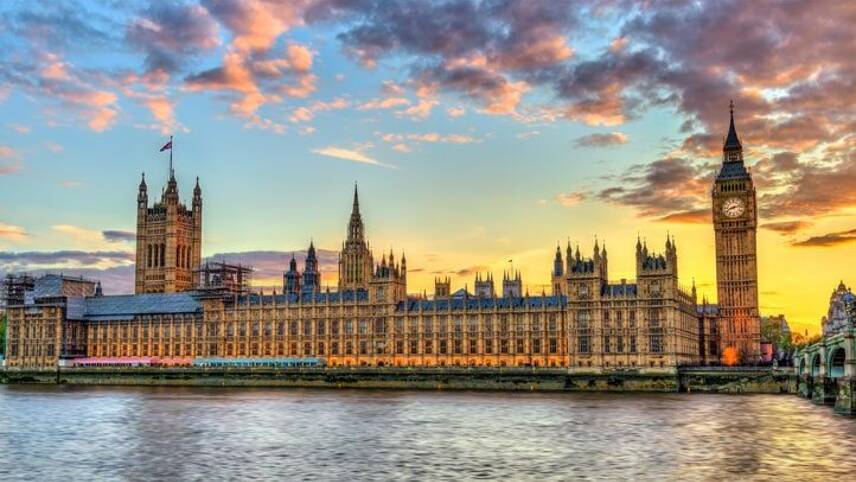Register for free and continue reading
Join our growing army of changemakers and get unlimited access to our premium content

The Strategies were both published in October 2021
Friends of the Earth has today (12 January) announced that it is filing papers for a Judicial Review at the High Court over the Net-Zero Strategy, which was published in October 2021 in preparation for COP26 in Glasgow.
The Government has badged the Strategy as a pathway for “transforming every sector of the global economy” in a manner aligned with net-zero by 2050 – a target the UK Government enshrined in law in 2019. However, green groups, trade bodies and MPs have all said that the Strategy left much to be desired and left many questions unanswered on a myriad of topics, including nature and green skills. It was notably lacking a list of time-bound, sector-specific percentage goals for cutting emissions.
Friends of the Earth has said it will argue, in court, that the Strategy does not comply with the UK’s 2008 Climate Change Act, which was updated in 2019 to account for net-zero, or with the forthcoming carbon budgets.
The campaign group is also voicing concerns that the Government did not, when asked, provide its equality impact assessment for the Strategy. It is not raising a legal challenge on this ground but is reminding Ministers of the levelling up commitments made by the Conservative Party.
ClientEarth is also, separately, filing papers arguing that the Net-Zero Strategy breaches the 2008 Climate Change Act. It will additionally argue that the Strategy is not in alignment with the Human Rights Act 1998, stating that climate change is likely to undermine the rights to family and private life of today’s youth as they get older.
“It’s not enough for the UK Government simply to have a net zero strategy, it needs to include real-world policies that ensure it succeeds,” said ClientEarth’s senior lawyer Sam Hunter Jones.
“Anything less is a breach of its legal duties and amounts to greenwashing and climate delay.
“The Government claims that those producing pollution should bear the cost of managing it. But its pie-in-the-sky approach to net-zero pushes that risk onto young people and future generations who stand to be hit hardest by the climate crisis.
“Energy bills are currently soaring, in part because of the UK’s over-reliance on fossil gas for heating and poor levels of insulation. Government failure to deliver real climate action is resulting in higher bills for people.”
Policy recommendations put forward by ClientEarth to improve the Strategy include the development of a major programme to improve home energy efficiency; stricter targets for aviation and agriculture emissions and more support for sustainable transport. Overall, the organisation believes the Conservative party is overstating the role of future innovations and under-investing in shovel-ready low-carbon solutions.
For both Friends of the Earth and ClientEarth’s filings, the Court will need to decide whether to grant permission to proceed to a full hearing.
Heat and Buildings Strategy
Friends of the Earth is also putting together a separate legal challenge at the High Court, over the Heat and Buildings Strategy.
Published in October, days before the Net-Zero Strategy, the Strategy received much media coverage following months of reported infighting between MPs and Treasury staff over how best to approach the phase-out of gas boilers in homes and businesses. It details £3.9bn of new funding and outlines plans for scaling up energy efficiency measures and heat pumps.
Friends of the Earth is arguing that, in developing the Strategy, the Government failed to identify and consider how it will affect vulnerable people, as it is legally required to under the Equality Act 2010. The environmental group is highlighting how those already facing – or at risk of falling into – fuel poverty are likely to be the most affected, and how groups including people of colour and people with disabilities are over-represented in the UK’s cohort of fuel-poor homes.
“We know that those who do least to cause climate breakdown are too often the hardest hit,” said Friends of the Earth lawyer Katie de Kauwe.
“Climate action must be based on reversing these inequalities, by designing the transition with the most vulnerable in mind…“Housing is a good example because people who need to consume the smallest amount of energy due to cost find themselves trapped in reliance on gas heating in cold, leaky homes. And now people across the country are facing an energy price crisis, with gas prices expected to double compared to just two years ago.”
Boris Johnson and Rishi Sunak are expected to announce new measures to alleviate the energy price crisis in the coming days. Proposals include a temporary suspension of VAT on energy bills, a windfall tax on oil and gas producers and a temporary suspension of the ECO levy. Energy companies are also calling for financial support packages.
Sarah George


Please login or Register to leave a comment.